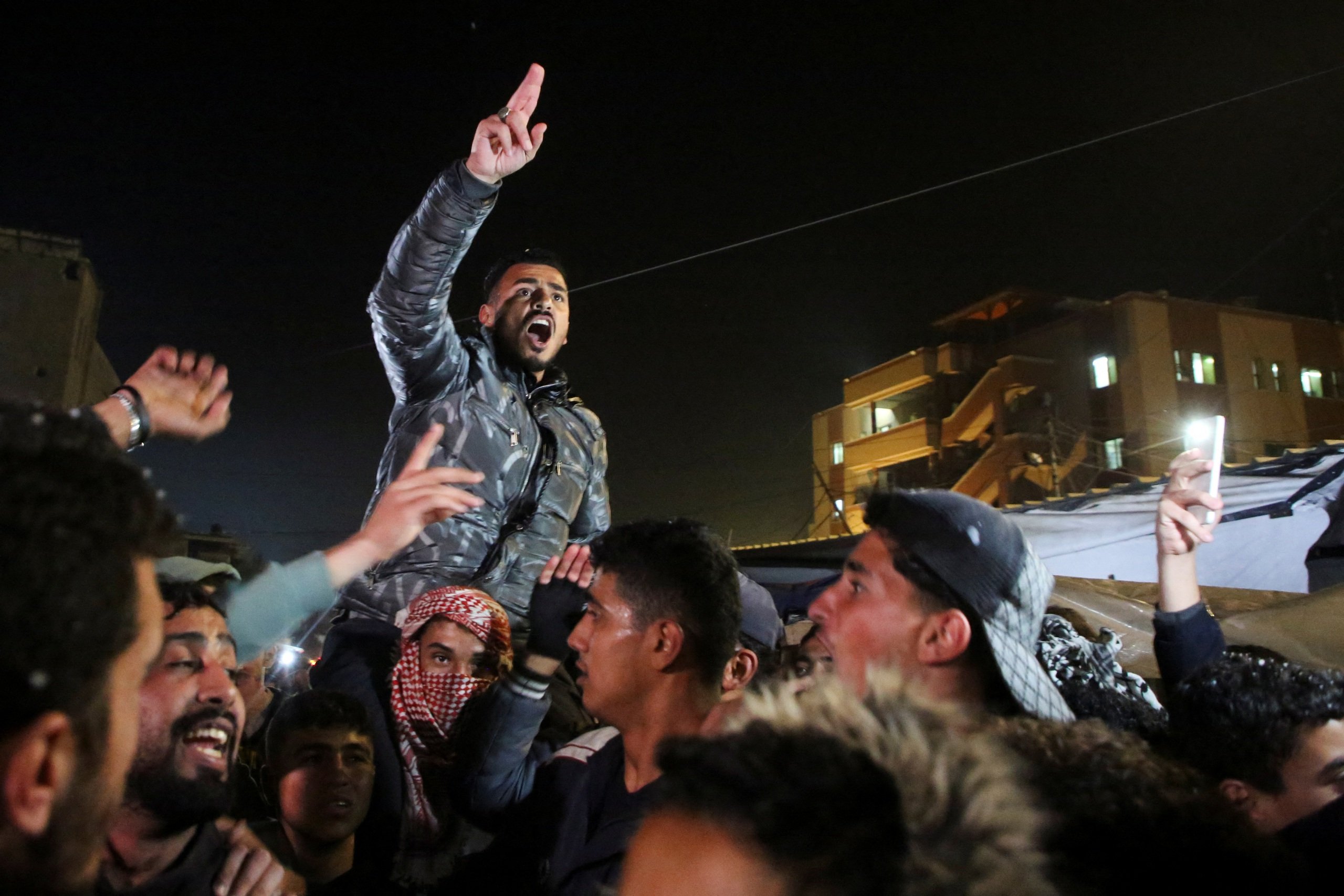After more than a year of fierce fighting between Israel and Hamas, and months of unsuccessful efforts to promote a ceasefire, the two negotiating mediators, the US and Qatar, on January 16 announced a ceasefire and hostage release agreement.

People cheer in Khan Younis, Gaza on January 15.
Waiting for the deal to "finish"
The ceasefire includes provisions for the release of hostages in stages and the gradual withdrawal of Israeli troops from Gaza. It should be noted that the agreement does not mean that the bombing will immediately end in Gaza, but this depends on the determination of the parties to implement the agreement in each stage. Israel and Hamas also reached a ceasefire agreement in November 2023 but it soon collapsed, while looking at the agreement between Israel and Hezbollah, both sides still have attacks on each other when accusing the other side of violating.
In a new development, Israeli Prime Minister Benjamin Netanyahu said yesterday that his cabinet will not meet to approve the ceasefire agreement as originally planned, citing Hamas' withdrawal of some terms at the last minute. Reuters quoted a senior Hamas official as saying that the group is committed to the ceasefire terms proposed by the mediators. If there are no last-minute problems, the agreement is expected to take effect on January 19.
Houthi forces in Yemen and armed groups in Iraq announced they would stop attacks on Israel after news that Israel and Hamas reached a ceasefire agreement in Gaza.
The news of the ceasefire has been welcomed by the international community. UN Secretary-General Antonio Guterres said he is ready to support the implementation of the agreement and expand the scale of humanitarian aid. Turkish Foreign Minister Hakan Fidan said the ceasefire is an important step towards regional stability. China's Foreign Ministry expressed hope that the ceasefire will be effectively implemented and lead to a complete ceasefire in Gaza. In the US, President Joe Biden and his successor Donald Trump have both taken credit for their contributions to the efforts to get Israel and Hamas to sign the agreement.
15 long months
The war in Gaza has had a significant impact on the geopolitical landscape in the region. According to the AP, Israel can claim tactical victories after more than a year of fighting with Hamas, including eliminating senior leaders and dealing heavy blows to the armed group. At the same time, Hamas's allies in the region such as Hezbollah and Iran have also suffered some damage.
However, Israel still has an unfinished goal that it repeatedly emphasized at the beginning of the war: the complete defeat of Hamas. A number of hostages have also died while being held in Gaza, including those who were shot by Israeli forces. The recent ceasefire negotiations have caused divisions within Israel, with people criticizing Prime Minister Netanyahu for putting political interests above the desire to return the hostages as soon as possible. On the other hand, moving towards a ceasefire has caused the Israeli leader to face opposition from the far-right coalition, which could threaten his position.
As for Hamas, this group believes that the attack on Israel on October 7, 2023 was in retaliation for Tel Aviv's actions in disputed territories with the Palestinians. The decision clearly drew the world's attention to the Palestinian issue in the region, but it also left serious damage in Gaza in terms of both human and material. According to Foreign Policy magazine on January 15, the reasoning for Hamas to agree to a ceasefire is quite clear. The group suffered great losses, which Israel claimed were 17,000 Hamas gunmen killed, many tunnel systems and infrastructure serving Hamas in the war were destroyed, and Hamas' influence also declined in Gaza when people suffered too much loss. However, experts say that as long as Hamas exists, it is still possible to reorganize its forces and restore its influence.
Damage in Gaza after 15 months of war
Gaza health authorities say more than a year of conflict has left more than 46,000 Palestinians dead and more than 110,000 injured. The UN says 90% of homes in Gaza have been destroyed or damaged, and the constant fighting has displaced about 1.9 million Palestinians, or 90% of Gaza's population. Health, education, and food have become urgent issues in Gaza, with more than 1.2 million cases of respiratory infections recorded in 2024, more than 870,000 people facing severe food insecurity, and 660,000 school-age children without access to formal education. Even if a ceasefire takes effect, rebuilding Gaza will be a difficult problem.
Source: https://thanhnien.vn/hoa-binh-dang-den-voi-trung-dong-185250116212001913.htm


![[Photo] Keep your warehouse safe in all situations](https://vphoto.vietnam.vn/thumb/1200x675/vietnam/resource/IMAGE/2025/10/1/3eb4eceafe68497989865e7faa4e4d0e)

![[Photo] President of the Cuban National Assembly visits President Ho Chi Minh's Mausoleum](https://vphoto.vietnam.vn/thumb/1200x675/vietnam/resource/IMAGE/2025/10/1/39f1142310fc4dae9e3de4fcc9ac2ed0)


![[Photo] Hanoi morning of October 1: Prolonged flooding, people wade to work](https://vphoto.vietnam.vn/thumb/1200x675/vietnam/resource/IMAGE/2025/10/1/189be28938e3493fa26b2938efa2059e)
























































































Comment (0)